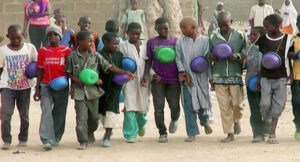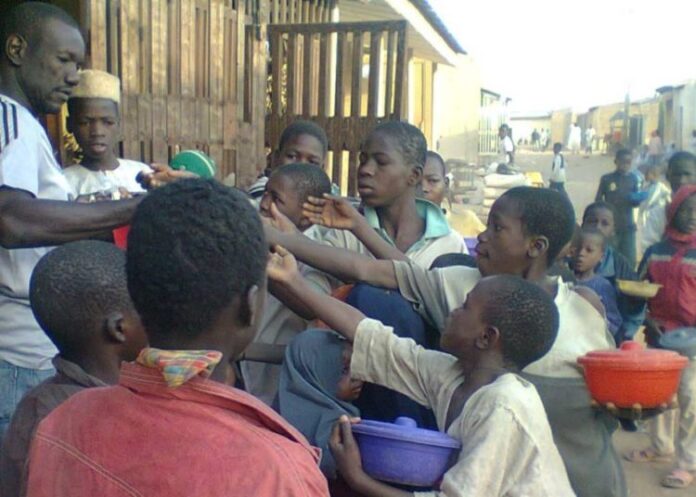Vice President Kashim Shettima has warned that children who remain out of school today could become a threat to their peers in the classroom tomorrow.
He spoke on Thursday at a conference organised by the Nigeria Governors Forum (NGF) focused on “Girl Child Empowerment through Quality Education at the Presidential Villa.
He stressed the urgent need for action to prevent future instability and social challenges.
The Vice President, represented by his chief of staff, Senator Ibrahim Hadejia, highlighted the urgent need to address the country’s out-of-school children crisis, emphasising its potential to destabilise Nigeria’s future.

“Each child, abandoned to the streets, is a liability that the nation will one day pay for,“ “We must, therefore, remember that the child who remains out of school today will be a threat to their peers in the classroom tomorrow, and we cannot afford to turn away from this reality,” he said. The vice president presented alarming statistics that underscore the gravity of the situation.
According to recent data, 25.6% of primary and 29.6% of secondary school-age children are currently out of school. The crisis is particularly acute in northern Nigeria, with some states facing staggering out-of-school rates.
“In Kebbi, Zamfara, and Bauchi, for example, more than 60% of primary school age children are not in school, with Kebbi at a staggering 64.8%,” he reported.
He added, “The secondary school numbers are similarly alarming, with Bauchi at 66.75%, Kebbi at 63.8%, and Jigawa, my state, at 62.6%.”
Emphasising the critical role of education, particularly for girls, Shettima stated, „The issue of girl child education is for every nation, but in our part of the world, her vulnerability is especially pronounced.
Her education is more than a moral obligation. It is the stabilising force of our economic and social order.”
To address this crisis, the government is pushing for increased education funding. “Our campaign to see 15 to 20% of the state budget allocated to education is not just a target, but a necessity as it is the surest way to guarantee the future of our children and our nation,” Shettima explained.
The speech called for a multi-sectoral approach involving all levels of government, civil society, and international partners.
„The Federal Government, states, local governments, civil society and our partners in the donor community must come together with a singular focus, ensuring that every Nigerian child, regardless of gender or geography, receives quality education,“ he urged.
Shettima emphasised the need for grassroots-driven reforms to create a safe, educational environment for the girl child.
“Whatever reforms we adopt to build a safe space for educating the girl child must be championed from within our communities,” he stated.
He stressed that policy-making requires the involvement of local leaders, traditional rulers, and religious figures.
According to the Vice President, these key stakeholders must recognise the dire consequences of neglecting girls’ education, as they hold the nation‘s future.
He further highlighted the transformative power of education for girls, describing it as the most powerful tool.
Shettima called for enhanced educational programs that empower girls and women by informing them about their rights and the risks they face without the ability to make informed choices, particularly in matters concerning their health.
Acknowledging the role of international partners, Shettima pointed to the critical support of organisations like the World Bank, the African Development Bank, and other multilateral institutions.
He praised their efforts but underscored the need for deeper collaborations, stating, “While we remain grateful for their interventions, we are still looking forward to deepening this partnership.”
The Vice President reiterated the importance of making a generational difference through continued cooperation with the donor community to secure a better future for the girl child in Nigeria.




